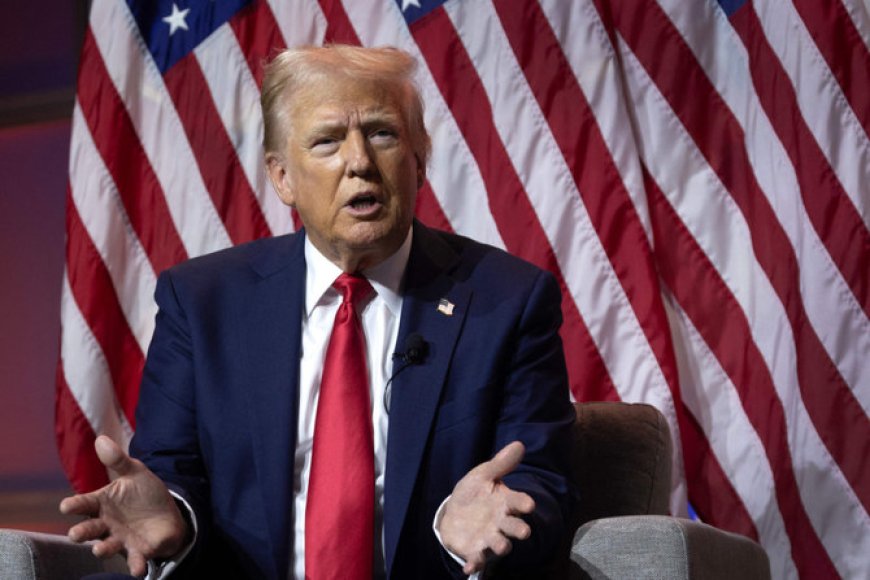Trump Falsely Claims Kamala Harris Misled Voters About Her Race

Former President Donald Trump sparked controversy at the National Association of Black Journalists (NABJ) convention on Wednesday, suggesting without evidence that Vice President Kamala Harris misled voters about her racial identity.
Speaking at the NABJ annual convention in Chicago, Trump inaccurately asserted that Harris, the first Black woman and Asian American to serve as vice president, had previously only identified with her Indian heritage. "I didn’t know she was Black until a number of years ago when she happened to turn Black and now she wants to be known as Black. So, I don’t know, is she Indian or is she Black?” Trump remarked.
Harris, born to a Jamaican father and an Indian mother, has been open about her multicultural background. She attended Howard University, a prominent historically Black college, and is a member of the Black sorority Alpha Kappa Alpha. As a senator, she was active in the Congressional Black Caucus, advocating for voting rights and police reform.
Reactions and Responses
Michael Tyler, communications director for Harris’ campaign, condemned Trump’s remarks, stating, "The hostility Donald Trump showed on stage today is the same hostility he has shown throughout his life, throughout his term in office, and throughout his campaign for president as he seeks to regain power." Tyler criticized Trump for his divisive tactics and his failure to unite the country.
White House press secretary Karine Jean-Pierre also expressed disbelief and called Trump’s comments "repulsive" and "insulting." Jean-Pierre, who is Black, emphasized, “No one has any right to tell someone who they are or how they identify.”
Trump's History of Racial Attacks
Trump’s comments are part of a broader pattern of questioning the backgrounds of racial minority opponents. He gained political prominence by promoting the “birther” conspiracy, which falsely claimed that President Barack Obama was not born in the United States. Despite multiple denials of racism, Trump has often attacked opponents on racial grounds. During this year’s Republican primary, he referred to former UN Ambassador Nikki Haley, the daughter of Indian immigrants, as “Nimbra.”
Hostile Interview
The NABJ interview with Trump quickly became confrontational. Interviewer Rachel Scott of ABC News questioned Trump on his past criticisms of Black individuals, his attacks on Black prosecutors, and a dinner he had with a white supremacist. Trump accused Scott of a "very rude introduction" and described her questions as "nasty," a term he has previously used to demean women such as Hillary Clinton and Meghan Markle.
Trump also repeated his unfounded claim that immigrants in the country illegally are “taking Black jobs.” When pressed by Scott to define a “Black job,” Trump vaguely responded, “A Black job is anybody that has a job,” drawing groans from the audience.
Audience Reaction
The audience's reaction to Trump's appearance was mixed, with both boos and applause. His statement that he has been "the best president for the Black population since Abraham Lincoln" was met with skepticism and disapproval.
Internal Debate and Future Appearances
Trump’s invitation to speak at the NABJ convention led to intense internal debate within the organization. Presidential candidates are typically invited to speak at such gatherings during election years. Despite the controversy, NABJ is in discussions to have Vice President Harris address the convention, potentially in a virtual session in September. Trump criticized this arrangement, claiming he was not permitted to appear virtually.
As Trump continues his campaign for the 2024 presidential election, his efforts to appeal to Black voters remain contentious. His rhetoric and policies are scrutinized for perpetuating racial divisions, with many questioning his ability to foster unity in a diverse nation.













































